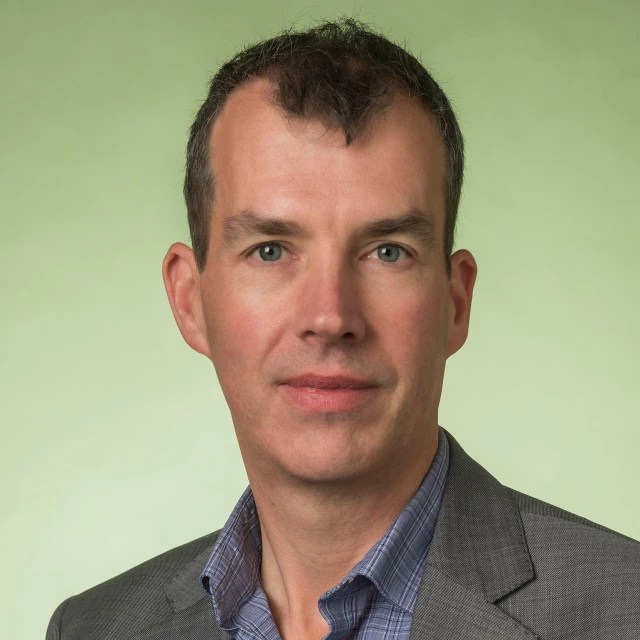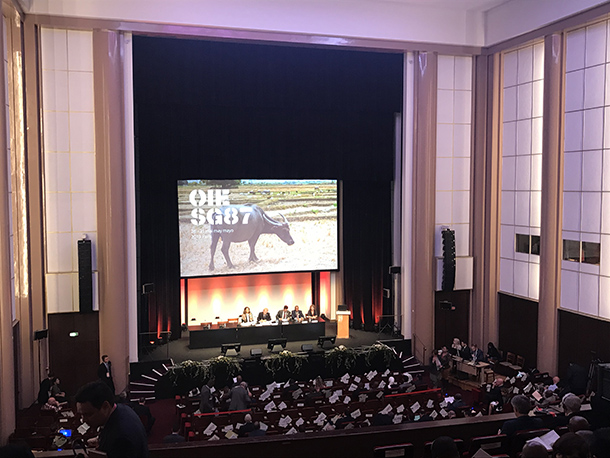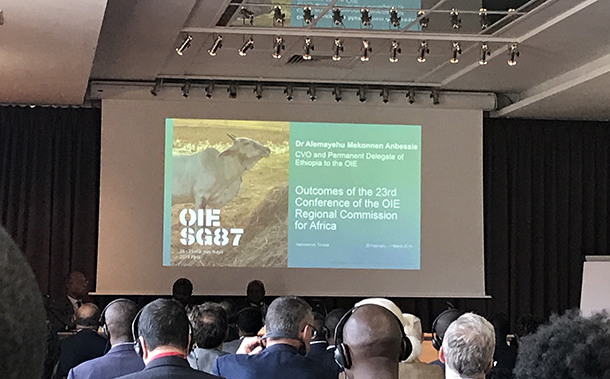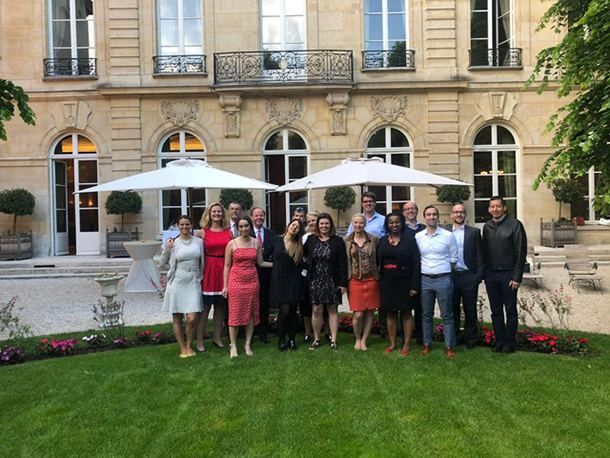Home \ Knowledge Hub \ Opinion \ Being Part of Animal Health Community – Working Together and Celebrating Efforts


01 Aug 2019
Being Part of Animal Health Community – Working Together and Celebrating Efforts
SHARE

ALASDAIR KING
Executive Director, International Veterinary Health
OIE General Session 2019
One of the main events for the second quarter of the year is the World Organisation for Animal Health (OIE) General Session, held at the OIE headquarters in Paris. Once again we were there, with John Atkinson and myself from Intergovernmental Veterinary Health, as well as Julie Vermooten, Allison Flinn, and Elzo Kannekens from our Public Policy team. This week-long conference is a great time for all of us in the front line of disease control to meet up and work on plans to partner against transboundary and emerging diseases.
The OIE General Session is a great time to work on plans and partner against transboundary and emerging diseases. This year, actions for controlling African swine fever (ASF) were on everyone’s mind. Getting a vaccine will be essential and alternative measures, such as good farm practice and education, are especially critical before we reach that milestone.

African swine fever (ASF) was high on everyone’s mind, and it is clear that a vaccine will be an essential part of controlling this disease which is threatening to reach pandemic proportions. Until we reach that milestone we all need to be aware of alternatives to controlling the disease. Effective tools include biosecurity, good farm practice, early detection, animal identification, movement control, surveillance, and education. During an outbreak then, the additional actions of depopulation, carcase disposal, cleaning and disinfection, and stand still movements are necessary. It is worth noting that a paper just published in PLoS ONE, “Socio-economic factors as indicators for various animal diseases in Sardinia” by Frederica Loi et al., shows how ASF is a One Health One Welfare disease, impacted by socio-economic status, demographic factors, and farm culture which influence both the farmer’s behaviour and the spread of disease.

Being in Paris, it would be wrong to make it all work and no play, and I’d happily recommend La Villa des Abbesses or Le Bon George as restaurants to visit. Also, we are fortunate that one of our colleagues lives a couple of blocks away from the meeting, so we could have a barbecue with people who we are lucky enough to consider friends as well as business acquaintances. Even then we ended up talking about how to improve supply lines in Africa! And that is the real reason that this is such an important week, we have time to talk and consider how we can work together with everyone to find the next steps in global disease control.



World Rabies Day Awards 2019 – public vote
The World Rabies Day Awards 2019 have now gone live and you can nominate people who you think worthy of recognition. We have run these awards, in partnership with the Global Alliance for Rabies Control (GARC), for a number of years. For 2019 we are introducing the innovation of a public vote after World Rabies Day. As well as the usual judges, the public will have their chance to vote on their favourites, and it will be exciting to see how this changes the award dynamics.
We achieved a milestone: 3 million doses of rabies vaccine donated
On the subject of rabies, this year we are celebrating donating over 3 million doses of rabies vaccine to Africa and Asia under our Afya program. This started with a vision 20 years ago that we could (and should) be a part of rabies elimination, and over the years it has grown into a commitment that we are partners in this community, working together toward a common goal. As well as providing vaccine, we engage in research, in developing innovative techniques to improve vaccination campaigns such as our use of text messaging and our studies on cold chain monitoring, and crucially in education, for example a comic book in Creole for school children in Haiti.
I hope you all have a great summer. It’s a time to re-energise and refresh, which is important for all of us so we can keep bringing the passion and commitment we all have towards controlling transboundary and emerging diseases.
Our commitment to eliminating rabies around the world began in the 1990s and we are celebrating the donation of more than 3 million doses of canine rabies vaccine to our partners, like Rabies Free Africa and Mission Rabies. A milestone for us and a step closer to a world free of rabies, watch the inspiring video here
ALASDAIR KING
Executive Director, International Veterinary Health

